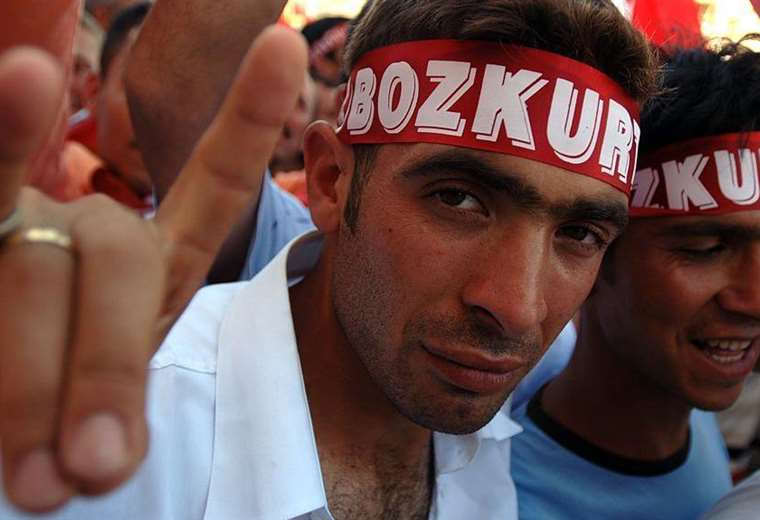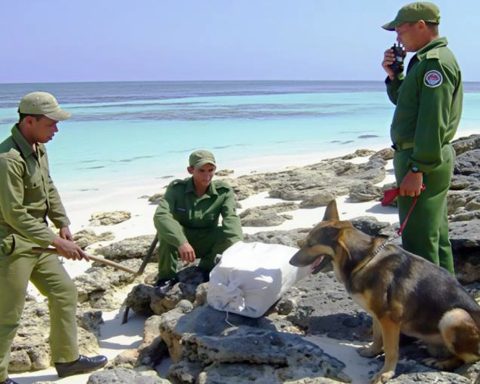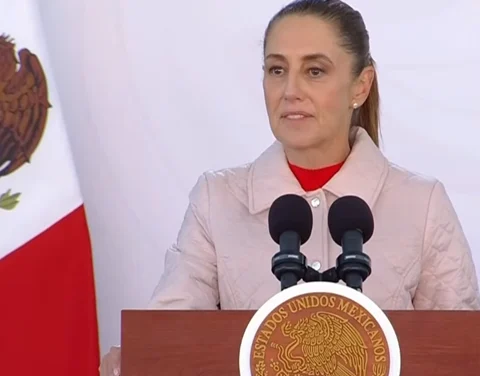September 16, 2024, 11:57 PM
September 16, 2024, 11:57 PM
The Grey Wolves, a far-right political movement in Turkey, are attracting increasing attention outside the country’s borders. The same is happening with their hand gesture, which represents the head of a wolf.
The “wolf salute” recently caused a huge controversy during the 2024 European Football Championship, when Turkish national team player Merih Demiral made the hand gesture after scoring a goal in the match against Austria, which his team won 2-1.
“Symbols of Turkish right-wing extremists have no place in our stadiums,” said German Interior Minister Nancy Faeser in a statement on the X platform. UEFA subsequently suspended Demiral. for two games.
Türkiye reacted by accusing the Berlin government of “xenophobia” for his criticism of the wolf salute, and Turkish President Erdogan came to Demiral’s defense, saying:
“Has anyone ever wondered why the German national team jersey has an eagle, or the French jersey a rooster? Merih [Demiral] He expressed his emotion with that gesture.”

For many, the wolf greeting is directly associated with the organization the Gray Wolves, also known as “Idealistic Homes.” It is the ultra-nationalist youth wing of the Nationalist Action Party (MHP). in Türkiye, which is allied with President Erdogan’s ruling AKP party.
Neither the wolf salute nor the Grey Wolves organisation are banned in Germany. But Austria and France have taken a stronger stance, with the former banning the gesture and the latter banning all activities of the organisation.
Turkish Diaspora
“When we talk about the Grey Wolves movement in Germany, what we are really talking about is a much broader ecosystem of clubs, of cafés, of local community associations,” explains Burcu Ozcelik, a senior research fellow in Middle East Security at the Royal United Services Institute (RUSI), a think tank in the UK.
Ozcelik notes that people who associate with the Grey Wolves in Germany have varying degrees of attachment, membership or commitment to the group and their affiliations are mostly fluid.
The federal office of The German Constitutional Protection Agency (BfV) classifies the Grey Wolves as a right-wing extremist group with between 18,500 and 20,000 members in that country.
Turks are the largest ethnic minority group in Germany, with a total of approximately three million Turkish citizens and Germans of Turkish descent. The total population of Germany is about 84 million.
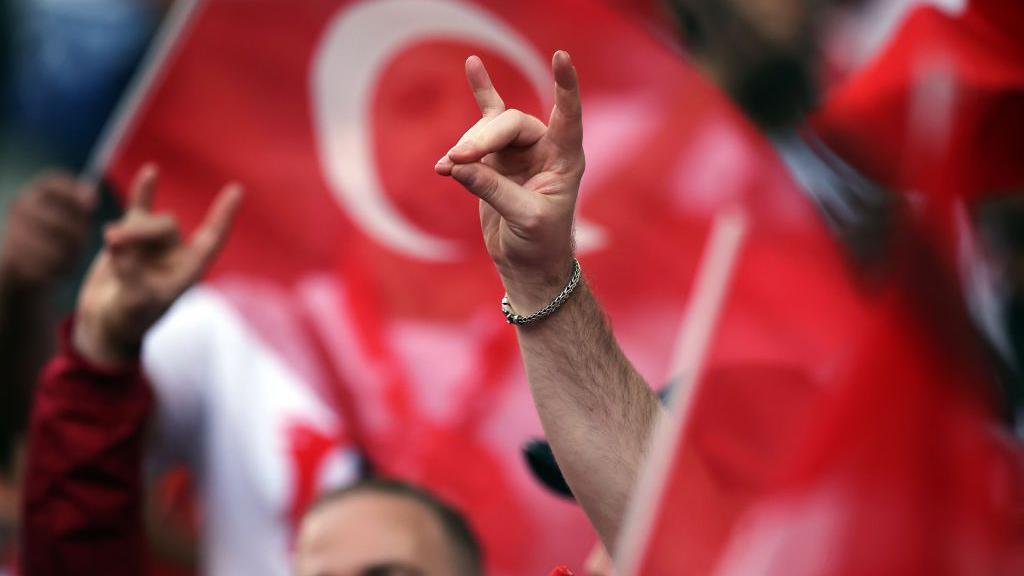
“Among the majority of the Turkish diaspora in Europe, nationalist tendencies and symbols are quite strong”comments journalist Kemal Can, an expert on Turkish nationalism.
“Islamists and nationalists in Europe are organised. So European governments are generally concerned that these political organisations, or criminal structures, may have the potential to cause tension,” he says.
“They want to introduce mechanisms to restrict not only their own far-right groups, but those within migrant communities.”
Violent action
The Grey Wolves have been accused of several acts of violence both in Turkey and Europe since the 1970s.
One of the highest profile cases involving the organization was The assassination attempt on Pope John Paul II in 1981 by Mehmet Ali Agcaa member of the Gray Wolves.
The supreme pontiff of the Catholic Church was seriously wounded by bullets in the attack.

The group was also involved in street riots in Turkey in the 1970s and 1980s, when its members took part in urban guerrilla fighting against leftist militants.
Gray Wolves are believed to have links to the “deep turkish state”an alleged network of powerful and undemocratic coalitions within Turkey’s political and bureaucratic structures.
In recent years, there have also been street clashes in European towns where the Grey Wolves were involved.
Political analyst Burcu Ozcelik says these incidents created an atmosphere of fear, sparking a broader debate on how to deal with the group.
Despite being controversial, In Germany the Grey Wolves are not an illegal groupBut Austria banned them from making the wolf gesture in 2019, and France banned all Grey Wolves activity altogether in 2020.
In 2021, the European Parliament recommended that Grey Wolves were included in the EU terrorist list.
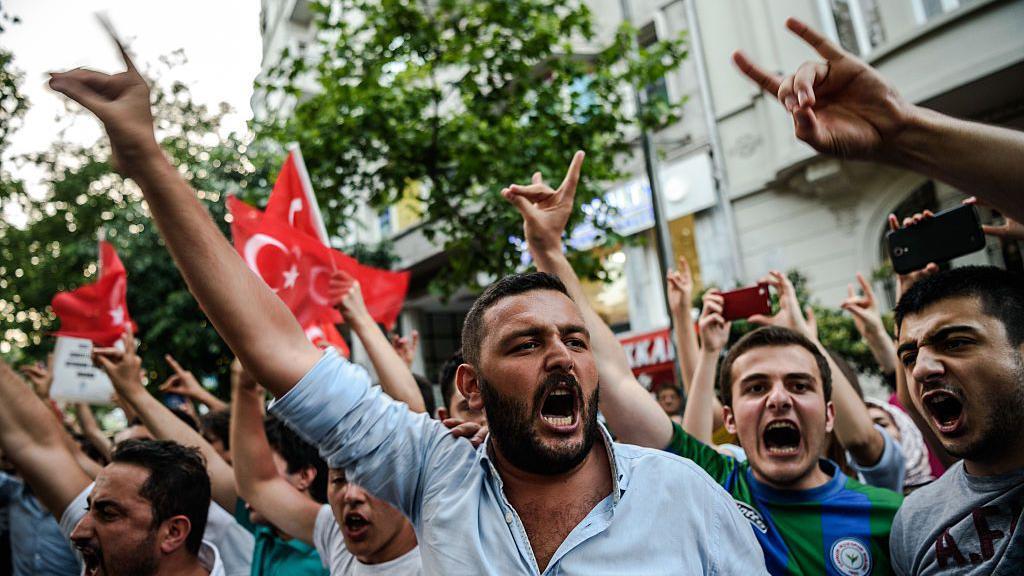
The debate surrounding the organisation goes beyond the borders of Europe.
In Azerbaijan, a country with close historical and linguistic ties to Türkiye, The group attempted to capitalize on the strengthening of nationalism in that country following the collapse of the Soviet Union in 1991..
“The Grey Wolves caused controversy in Azerbaijan after their alleged involvement in a 1995 coup attempt against Heydar Aliyev, the father of current President Ilham Aliyev,” said Könül Khalilova, editor of BBC News Azerbaijani.
“Heydar Alizyev, a former KGB general, saw this group as a threat to his regime. As a result, the Grey Wolves were banned in Azerbaijan and their leader killed during the coup attempt.”
In 2005, Kazakhstan, a country in Central Asia that also has multiple historical ties to Turkey through language and culture, also declared the organization illegal, classifying it as a “terrorist group.”
Türkiye says there is no movement called the Grey Wolves and that banning the wolf salute is unacceptable.
The wolf as a guiding figure
“The symbol of the wolf is one of the most important symbols for Turks,” Professor Ahmet Tasgil of the Department of Turkish Language and Literature at Yeditepe University in Istanbul told Anadolu news agency.
“All the Turkic tribes living in Central Asia used that symbol during the fourth and fifth centuries,” he said.
He also referred to the sources of the 12th and 13th centuries that mention that The Turks, when they arrived in Anatolia, followed a wolfaccording to Armenian, Syriac and other Middle Eastern legends.
“For Turks, the wolf is a guiding figure, representing wisdom,” he added.
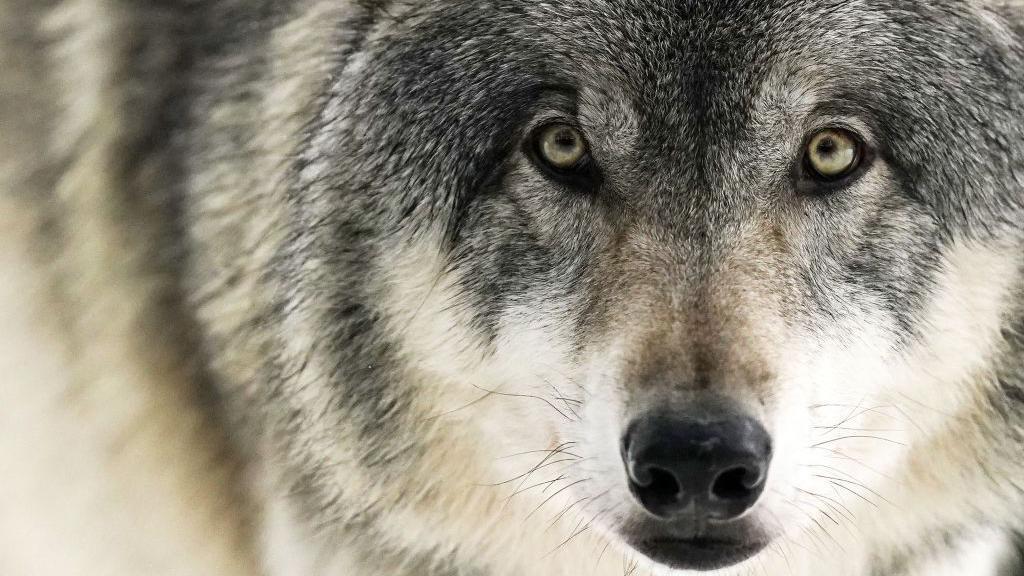
During the Ottoman period in the late 19th century, the wolf symbol was used in various forms, and in early modern Turkey appeared on banknotes and stamps.
However, the wolf salute is much more recent. It emerged in Azerbaijan in the early 1990s amid mass protests, says Könül Khalilova.
“These protests contributed to the country’s independence and the collapse of the Soviet Union. This gesture, although not widely used, became a symbol of Turkish identity for some people,” he says.
“For them, it symbolized a cultural and ethnic identity that had been repressed during the Soviet regime,” he says.
The founder of the Nationalist Action Party in Türkiye is believed to have seen that The wolf salute was used during a political rally in Azerbaijan in 1992. and adopted it as the symbol of the Gray Wolves in Türkiye.
“It is not a national symbol”
“In the 1990s, the Grey Wolves were part of the general wave of nationalist sentiment and consolidated an identity by declaring themselves in favour of the exclusion of the Kurdish minority,” says expert Kemal Can.
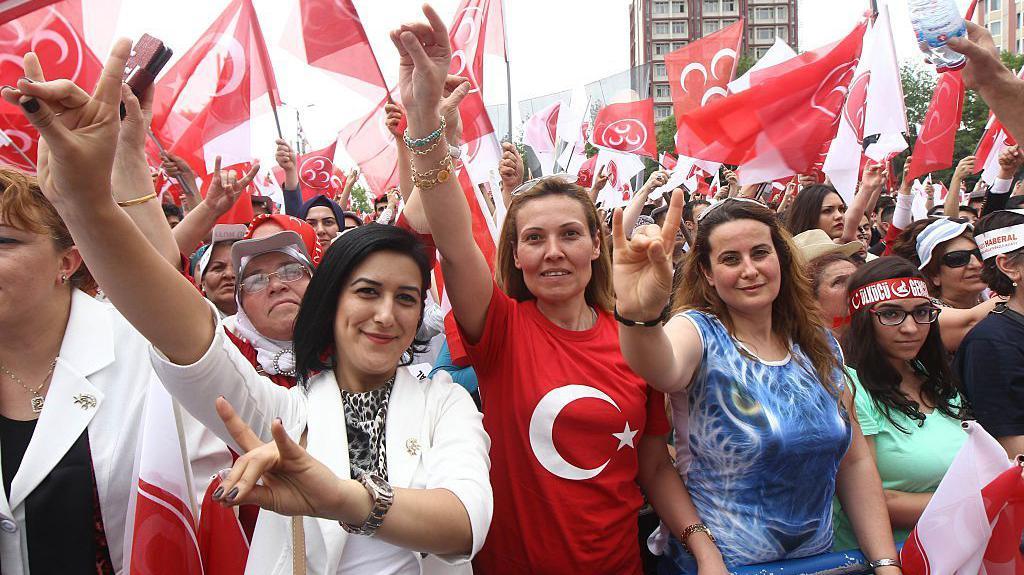
Can highlights that many Leaders across the political spectrum in Türkiye used the wolf salute to appear in solidarity with nationalist voters.
“However, this greeting has never been accepted as a national symbol in Türkiye,” he says.
Burcu Ozcelik agrees.
“Many Turks, although they are openly and proud of their Turkish nationalist identity and sentiment, do not associate themselves with the Grey Wolves,” he says.
“So It is not a unifying symbolnor is it representative of a broader universal sense of Turkish identity.”

And remember that you can receive notifications in our app. Download the latest version and activate them.
